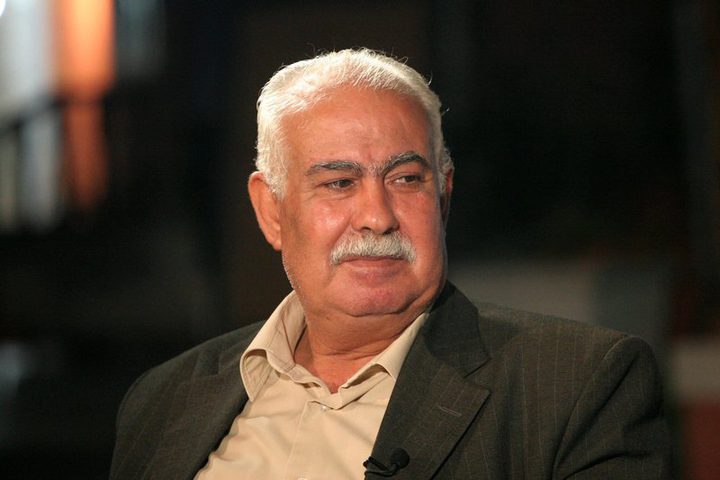Aggression Against Qatar: The Summit and What Comes Next
Al-Khamisa News Network - Gaza

Author: Talal Awkal
While blatant U.S. maneuvering continues over the possibility of resuming negotiations to secure the release of hostages and halt the aggressive war on the Gaza Strip, the military operation presses ahead with the destruction of Gaza City, emptying its population through killing, starvation and disease, or forcing them to suffer the hardships of displacement to the south.
Talk of a return to the negotiating table, and the meetings Steve Witkoff is holding with Qatar, are nothing more than time-wasting, extending the period available to commit massacres and continue the destruction in Gaza City and across the Strip.
The U.S. administration, which trades in disinformation with the occupying state, no longer appears, unlike Netanyahu, to be interested in securing the release of hostages through negotiations, so as not to face the question of stopping the bloody war and the questions of the “day after.”
Donald Trump tells the media he has not seen the U.N. report that speaks of a genocidal war being committed by the Israeli state, and that he has only seen what happened on October 7. To underscore his administration’s partnership in what is being done, his administration announced a $6.4 billion arms deal.
Trump does not admit that he is dragging his country into growing international isolation, as is the case with his partner in the occupying state, who has recently acknowledged that his country faces increasing international isolation and is suffering economic strangulation.
The United States has not stopped making every possible effort to pressure countries that recognize, or are moving toward recognizing, the State of Palestine, but it has failed to stop this “tsunami.”
For the sixth time since the “Al-Aqsa Flood,” the U.S. envoy has cast a veto against draft resolutions to stop the genocidal war and to allow humanitarian aid in.
Fourteen countries on the Security Council and 142 states in the U.N. General Assembly stand against the United States on the Security Council, with only a few countries siding with it in the General Assembly — a sign that the entire international community is turning away from supporting the U.S. and Israeli partners.
The Trump administration, pulled by Netanyahu, has no solutions to this isolation; it is heading toward the unknown without any guarantees for achieving either the declared or undisclosed objectives regarding the Palestinian cause and the Middle East.
Netanyahu openly admits the failure of the Israeli narrative and believes the solution is to allocate more millions of dollars to the media sector.
Faced with isolation and economic deterioration, he sees a policy of self-reliance — a “Spartan model” — as the answer, ignoring that his entity relied at its founding and since on external aid and grants, and that the times have changed fundamentally.
All indicators suggest that the U.S.-Israeli alliance continues to wage and expand wars in the region: there is no immediate solution in the Gaza Strip, no acceptable solution for the West Bank for the international community, nor any resolution in Lebanon or even in Syria. Trump believes his current priority is resolving the tension between Qatar and the occupying state after the latter’s aggression against Doha.
Trump may have felt satisfied with the outcomes of the recent Arab-Islamic summit convened at Qatar’s request to confront the aggression against it, and that those outcomes ignored the serious, high-toned speeches delivered by some presidents at the summit.
However, the U.S. administration has so far ignored the developments that followed the summit and has not commented on them, as if it does not want to believe what is happening or is confident in its ability to contain these significant developments.
The Arabs at their summit did not decide to activate the mutual defense agreement, and the U.S. administration does not seem to take the meetings of the Gulf Cooperation Council’s joint military council seriously. Yet there are reasons for Washington and Tel Aviv to worry about the practical reactions that followed the Israeli message implied by the bombing of Doha.
Saudi Arabia, which maintains a strategic alliance with the United States, decided to sign a mutual defense agreement with nuclear Pakistan.
Pakistan’s defense minister announced immediately after the agreement was signed that Pakistan’s nuclear capabilities would be available to Saudi Arabia if it needed them. Pakistan, closely linked to China, had declared during the 12‑day war on Iran that it stood firmly with Iran.
Egypt is moving toward Turkey, with the two set to conduct exercises in the eastern Mediterranean — an apparent sign of a major development in relations between the two countries, in anticipation of coming risks from a known source.
The United Arab Emirates has taken a different path, signing a defense agreement with India, which is allied with the United States and has close ties with the occupying state, despite India’s recent leanings toward China during the Shanghai Cooperation summit.
In another striking development, Hezbollah issued an open, public letter to Saudi Arabia calling for reconciliation and burying past disputes, especially in light of the failure of U.S. attempts to pressure the Israeli state to help enable the Lebanese government to contain the party and its arms.
Between these moves, developments point to improving Iranian—Egyptian and Iranian—Saudi relations, suggesting that everyone in the region is redefining who the main enemy is.
Thus the United States fails at what it has sought for years: to build an Arab-Islamic “NATO” of “moderate” states that would include the occupying entity and be led by the United States.
Netanyahu has thwarted all those expectations and objectives, including expanding the circle of the “Abraham Accords,” and continues to believe that the best way to achieve that is through force and domination.
Netanyahu is fighting wars to achieve unrealistic goals: to redraw the map of the Middle East and establish a Jewish state over the whole of historic Palestine. In reality, however, he is waging a war against his own entity that threatens every aspect of life there — and, worse, is dragging the great power into the abyss.



